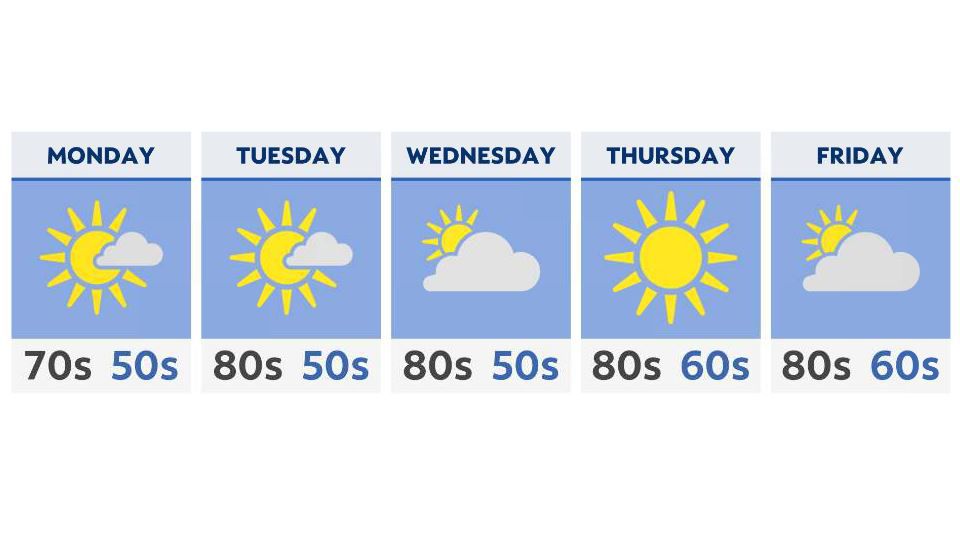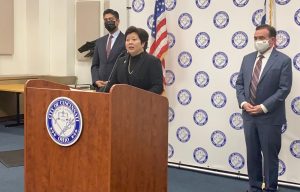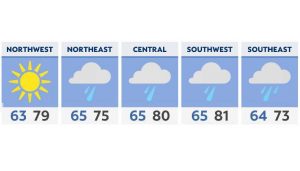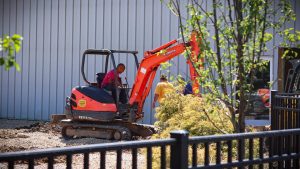CLEVELAND — Paula Crider is a mother of four, and her children range in age from 10 to 22 years old.
“My children are my world,” she said.
What You Need To Know
- Paula Crider lives with a rare autoimmune disease known as pulmonary alveolar proteinosis or PAP
- A procedure called “lung washing” helped her avoid a double-lung transplant and saved her life
- Crider was hospitalized in Cleveland for a month and during that time, she completed the final work needed to earn her Master’s degree
Family is something she said she appreciates even more after all they’ve been through together since she was diagnosed with a rare autoimmune disease known as pulmonary alveolar proteinosis or PAP.
The disease slowly suffocates a person by blocking the transfer of oxygen into the bloodstream.
“I’m still here, and it’s a miracle,” Crider said.
Crider’s health journey began in 2018, when right before Christmas, she came down with a persistent cough.
Doctors told her she had bronchitis.
Months went by and her symptoms worsened as she started experiencing tiredness and shortness of breath.
“Shortly before I got sick, my husband was actually diagnosed with a brain disease. So, we had been dealing with that,” she said. “So, I have been the one that’s been the constant and whenever I was getting sick, it was very difficult.”
A few weeks before a family vacation to Disney in March 2019, her doctor told her to come back if things didn’t improve.
But during the trip, Crider described feeling like she was in a fog.
“The day before we left to come home, our oldest daughter, Katelyn, said to me, ‘Mom, your lips are blue,’” Crider said.
She now knows it was because she wasn’t getting enough oxygen.
After returning home to Pittsburgh, she went to the doctor, who told her to go to the hospital.
“I never left the hospital at that point,” Crider said. “So, my oxygen was in the 70s.”
Crider was at the hospital for a few days and then transferred to a different facility to see a pulmonologist.
He diagnosed her with PAP, and she underwent her first lung washing procedure.
Lung washing is usually only done on PAP patients under general anesthesia. One lung is treated at a time during a single operation.
“It’s a procedure where you literally wash the lungs. I mean, you instill fluid, shake it around, and suck it back out. And you do liters and liters and liters of fluid on each side,” said Dr. Leslie Tolle, pulmonary medicine physician at the Cleveland Clinic.
But after the procedure, Crider’s first thought was not about her own health.
“My first thought after I woke up was my children,” she said.
She wanted to put on a brave face for her children and shield them from how serious her condition was.
“It was scary. But I knew that I couldn’t let the kids see that because there’s always that hope,” she said.
She was in a Pittsburgh hospital for about a month and intubated for two weeks.
After being discharged, she lived with an oxygen tank by her side for months and had multiple lung washing procedures.
Crider wasn’t getting better.
By Oct. 2019, she was referred to the Cleveland Clinic and was told she needed a double-lung transplant.
“I actually thought ‘this is it, I’m not going to make it,’” Crider said.
Crider was hospitalized in Cleveland for a month and during that time, she completed the final work needed to earn her Master’s degree. She graduated with a 4.0.
Cleveland Clinic doctors gave her one last lung washing, and that time, it worked. No transplant needed.
“It was a huge relief,” she said.
Now, the 39-year-old mother feels like she has her life back.
“Being able to do what I want when I want,” she said. “I’m not limited.”
Crider had a message for other moms on Mother’s Day.
“Listen to your body and take care of yourself,” she said. “Because if you don’t take care of yourself, then you’re not able to take care of anybody else.”




